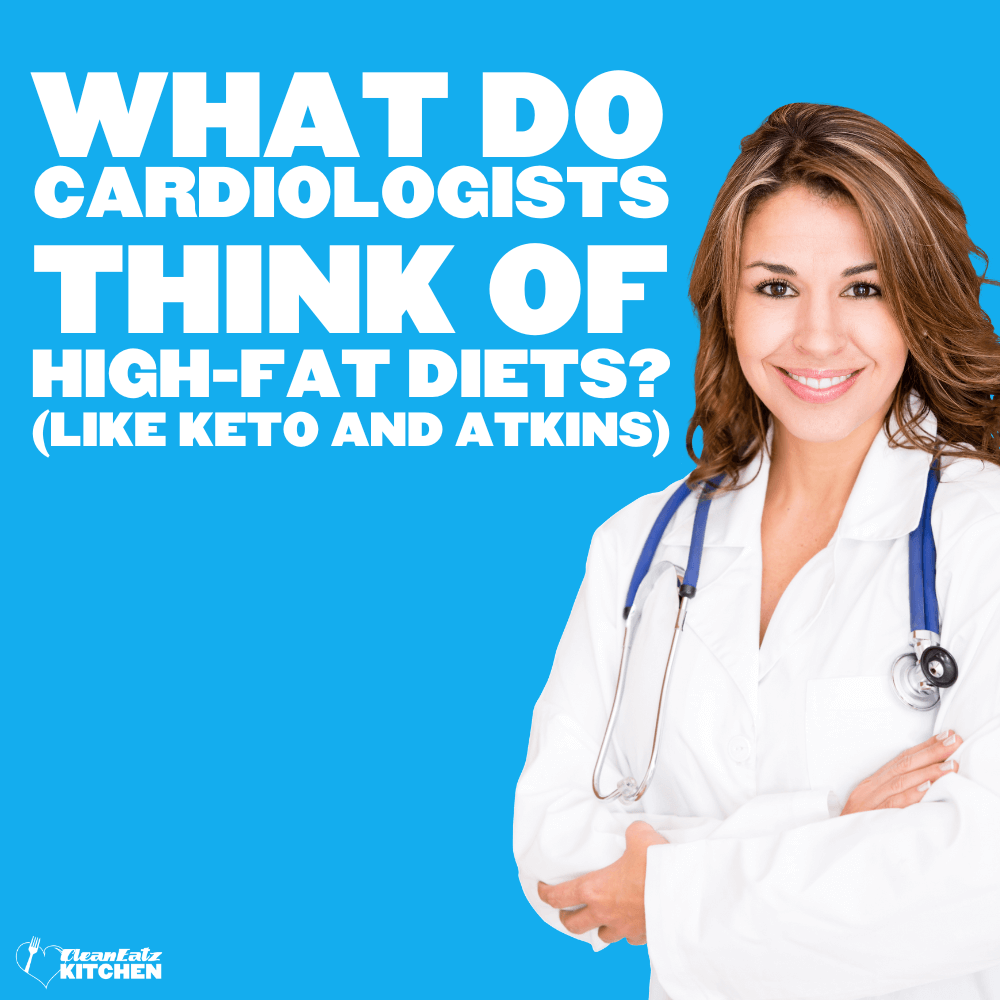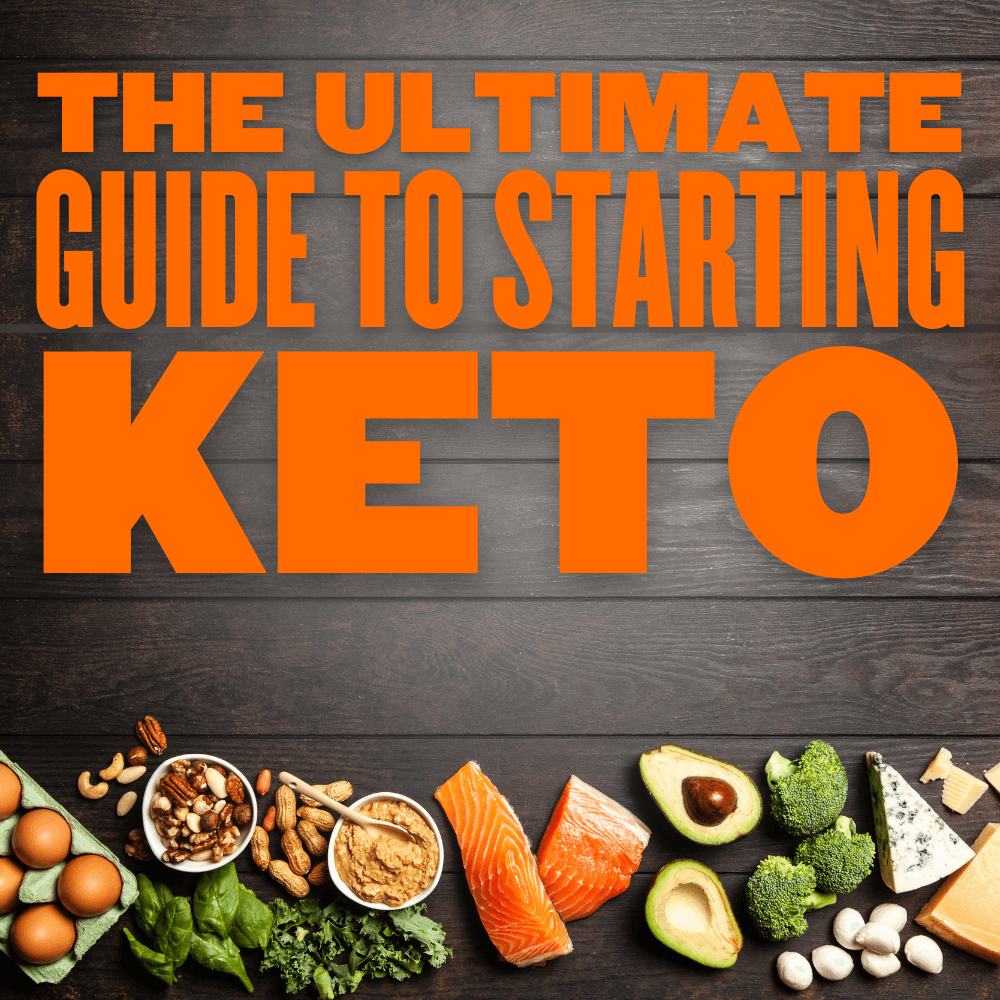
High-Fat Diets Unraveled: What Do Cardiologists Think of Popular Regimens Like Keto and Atkins?
Diana Ketchen
Nutrition
|
Weight Loss
|
Healthy Lifestyle
6 minute read
Navigating the maze of nutrition with so much conflicting advice is a challenge. High-fat diets, particularly the ketogenic (keto) and Atkins diets, are subjects of intense debate among dietitians, physicians, and cardiologists. So, when considering which is better: Atkins or keto, what do cardiologists have to say? Let's delve in.
What Are Keto and Atkins Diets?
The keto diet, one of the popular high fat diets, is characterized by its low-carb, high-fat content. It drives your body into a state of ketosis, where fat, rather than carbohydrates, is burned for energy. By limiting carb intake, you essentially force your body to utilize fat over glucose from carbs. A typical keto diet consists of 70-75% fat, 15-20% protein, and 5-10% carbs. Keto meal delivery services offer a way to ensure adherence to this regimen.
On the other hand, the Atkins high fat diet has been a staple in the high-fat diet realm since the 1970s, it emphasizes cutting carbs to roughly 20g daily for two weeks to reach ketosis. Post this phase, it progressively reintroduces carbs until the individual achieves their weight loss target or identifies a personal balance between carbs and fats.
How Do Cardiologists View These Diets?
Cardiologists generally concur that while Atkins high fat diet and keto might lead to initial weight loss due to their restrictive nature, they're better suited as short-term solutions. Potential health risks, including heart disease or stroke, emerge from the elevated fat content. There's also a prevalent concern among cardiologists about the nutrient deficit in these diets. If not supplemented with nutrient-dense foods, deficiencies could arise over time.
While many swear by these diets for weight loss, depending solely on them might not be wise. Research shows that holistic lifestyle modifications, like increased physical activity and balanced nutrition, tend to yield more lasting weight maintenance than strictly adhering to diet restrictions. For many aiming for safe and enduring weight loss, a wholesome weight loss meal delivery plan combined with consistent exercise proves more beneficial than opting solely for which is better: Atkins or keto.
The Pros of High-Fat Diets from a Cardiologist's Perspective
There's no universally correct stance on high-fat diets. However, some cardiologists believe they can offer benefits under specific conditions:
- Reducing Inflammation: One advantage from a cardiologist's standpoint is inflammation reduction. Inflammation is tied to several cardiovascular problems, like atherosclerosis and heart attacks. High-fat diets can thus contribute to cardiovascular wellness by curbing inflammation.
- Lowering Blood Sugar Levels: As many high-fat diets also skimp on carbs, they can assist in decreasing blood sugar levels, mitigating diabetes and heart disease risks. This aids the heart by managing insulin resistance and boosting glucose tolerance.
- Weight Loss Tool: Another pro of high-fat diets from a cardiologist's view is their potential as a weight loss strategy. These diets limit carb intake, pushing the body to burn fat over carbs, promoting weight loss, provided the individual adheres to their dietary plan and watches their calorie consumption. Some studies even suggest that low-carb/high-fat diets might lead to more sustainable weight loss compared to other stringent diets.
The Cons of High-Fat Diets From a Cardiologist's Perspective
There are some potential benefits of high-fat diets, but there are also significant concerns. This article will delve into some of the potential risks linked with such diets.
Weight Gain
A common issue with high-fat diets is their sustainability. While some people might experience initial weight loss, the cravings for eliminated carbohydrates or other foods often lead them to deviate from the diet. Succumbing to these cravings can result in regaining the lost weight and even adding more weight. Following such weight gain meal plan can further increase the risk of heart disease and other health challenges.
Unhealthy Fat Consumption
A major concern with high-fat diets is that many individuals are unclear about the amount and types of fats they should be consuming. Consuming excessive or unhealthy fats can escalate cholesterol levels, amplifying the risk of heart disease. It's pivotal to prioritize healthier fats like olive oil, nuts, flaxseed, and avocados over saturated fats present in processed meats and full-fat dairy.
Nutrient Deficiencies
High-fat diets often restrict certain food categories, including fruits and vegetables, risking nutrient deficiencies in the long run. Those on these diets should ensure they supplement adequately with vitamins and minerals either through dietary supplements or nutrient-enriched foods. Keep in mind that a balanced keto meal plan delivery service is often recommended for a healthier lifestyle.
Which is Better Atkins or Keto
A Cardiologist’s Viewpoint Most cardiologists concur that though diets like Atkins and Keto might offer initial weight loss, their restrictive nature makes them unsustainable in the long run. The question often arises, "Which is better Atkins or Keto?" From a cardiologist's standpoint, the potential nutrient deficiency in both diets is worrisome. It's essential for followers to balance them with nutrient-packed foods like fruits, vegetables, nuts, and seeds.
For individuals aiming for sustainable weight loss, a well-balanced diet combined with regular exercise often proves more effective than choosing between Atkins or Keto. While some cardiologists acknowledge the benefits of high-fat diets in specific scenarios, such as inflammation reduction and keto glucose levels management, they also emphasize the inherent risks, including unhealthy fat consumption and potential nutrient deficiencies.
Conclusion
The landscape of nutrition is replete with choices, each with its pros and cons. High-fat diets, particularly Atkins and Keto, have gained considerable attention. But keep in mind that while consuming unhealthy fats, potential weight regain, and nutrient deficiencies stand as major concerns. The general consensus among cardiologists appears to lean towards caution and moderation. While the debate on "which is Better: Atkins or Keto?" might persist, the key lies in personal responsibility, adherence to wholesome nutrition, and regular exercise, rather than seeking magic bullets.
FAQs:
What distinguishes the Keto diet from the Atkins diet?
The Keto diet is predominantly low-carb, emphasizing fat as the primary source of energy. A typical keto meal comprises 70-75% fat, 15-20% protein, and 5-10% carbs. In contrast, the Atkins diet starts with a stringent low-carb phase, gradually reintroducing carbs based on individual tolerance.
Why do cardiologists express concern over high-fat diets?
Cardiologists are primarily concerned about the risk of heart diseases due to unhealthy fat consumption, potential nutrient deficiencies from restricting certain foods, and the sustainability of these diets leading to potential weight regain.
Are there any potential health benefits to high-fat diets?
Yes, some cardiologists believe that high-fat diets can offer benefits like inflammation reduction, blood sugar level control, and possibly sustainable weight loss if adhered to properly.
Which is better for long-term sustainability: Atkins or Keto?
Most cardiologists opine that both diets, due to their restrictive nature, might be challenging to maintain in the long run. A balanced diet is often recommended for sustained health benefits. However, individual preferences and experiences might vary.
Related Articles
Is Exercise a Form of Meditation?
5 minute read
Tips for Eating Healthy While Dining Out
5 minute read
The Ultimate Guide to Starting a Keto Diet
7 minute read



